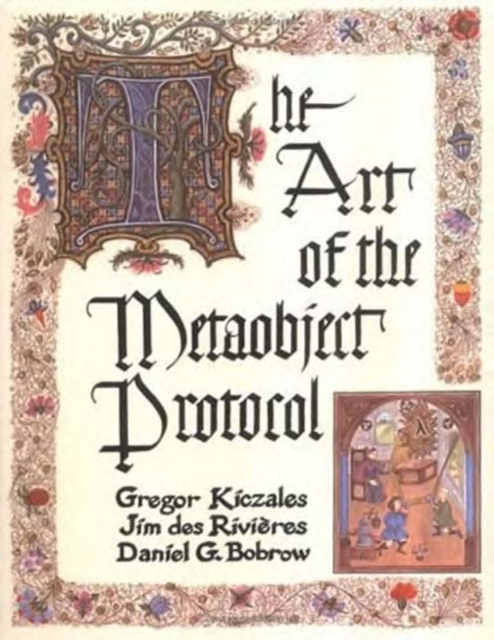
The Art of the Metaobject Protocol PDF
by Gregor Kiczales, Jim des Rivieres, Daniel G. Bobrow
Part of the The MIT Press series
Description
The authors introduce this new approach to programming language design, describe its evolution and design principles, and present a formal specification of a metaobject protocol for CLOS.
The CLOS metaobject protocol is an elegant, high-performance extension to the CommonLisp Object System. The authors, who developed the metaobject protocol and who were among the group that developed CLOS, introduce this new approach to programming language design, describe its evolution and design principles, and present a formal specification of a metaobject protocol for CLOS.
Kiczales, des Rivieres, and Bobrow show that the "art of metaobject protocol design" lies in creating a synthetic combination of object-oriented and reflective techniques that can be applied under existing software engineering considerations to yield a new approach to programming language design that meets a broad set of design criteria.
One of the major benefits of including the metaobject protocol in programming languages is that it allows users to adjust the language to better suit their needs. Metaobject protocols also disprove the adage that adding more flexibility to a programming language reduces its performance. In presenting the principles of metaobject protocols, the authors work with actual code for a simplified implementation of CLOS and its metaobject protocol, providing an opportunity for the reader to gain hands-on experience with the design process. They also include a number of exercises that address important concerns and open issues.
Gregor Kiczales and Jim des Rivieres, are Members of the Research Staff, and Daniel Bobrow is a Research Fellow, in the System Sciences Laboratory at Xerox Palo Alto Research Center.
Information
-
Download - Immediately Available
- Format:PDF
- Pages:352 pages
- Publisher:The MIT Press
- Publication Date:30/07/1991
- Category:
- ISBN:9780262277082
Other Formats
- Hardback from £24.59
Information
-
Download - Immediately Available
- Format:PDF
- Pages:352 pages
- Publisher:The MIT Press
- Publication Date:30/07/1991
- Category:
- ISBN:9780262277082










